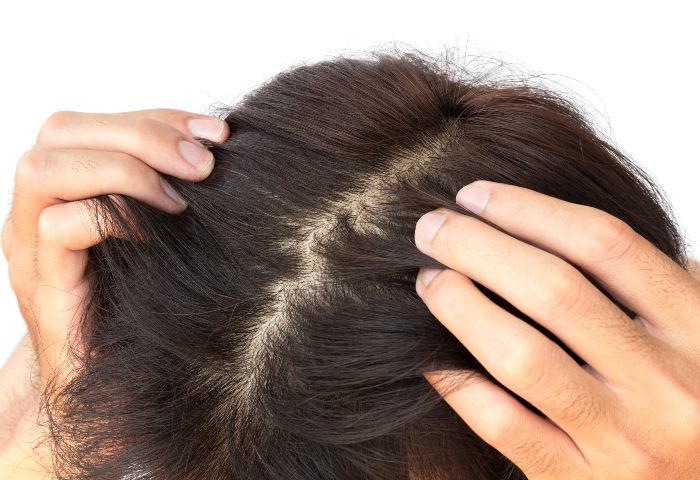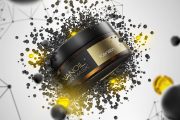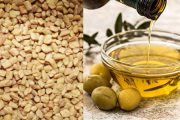Is your scalp itchy, prickly, and constantly irritated? The reasons may be various, among many, dandruff. Sometimes it is a symptom of a disease and sometimes a result of our own neglect. It is time to take a closer look at the itchy scalp and bring some relief to it.

Young man serious hair loss problem for health care shampoo and beauty product concept
Even though you may think like it’s something that happens only to you, the truth is that itchy scalp is a very common issue. It is said that every fifth person can have a problem with the itchy and irritated scalp. If it is something that just happens from time to time, then there’s no big of a problem. It may be worse if your scalp itches constantly and you feel helpless not knowing what to do. If that sounds like your problem, here’s a manual for you.
Itchy scalp
The unpleasant sensation appears due to irritation caused by external factors to the nerve endings in the scalp. As a result, the skin is itchy and prickly like a wildfire. In this situation, the only thing you want to do is to scratch your head (literally!).
However, it will not solve the problem. The more you scratch the worse the problem gets and skin is even itchier. That is why it is good to know the cause and why the skin is itchy. Then it will be easier to choose the right cosmetics and products that can help solve the problem.
Why does skin itch?
The causes of scalp itching can be various. There are differentiated several different factors that can cause irritations. Those most important ones and the most common are:
- skin diseases (mostly dandruff, psoriasis),
- not washing oily hair on a regular basis,
- too often washing normal hair (skin dryness),
- pediculosis and other parasitic diseases as well as a fungal infection of the scalp,
- atopic eczema or hair follicle inflammation,
- hypothyroidism and other systemic diseases,
- smoke exposition, e.g. from cigarettes or toxins,
- allergy to ingredients of some cosmetics for hair,
- hormonal disorder, stress, organism weakening.
Scalp itching in the winter
For some people, the itchy scalp issue may increase in the winter season. It’s nothing new, in the winter the scalp is dry, temperatures are lower, the humidity outside is higher while the air in rooms is dry. In the winter the general organism’s immunity is lower so irritations may appear more often. The itchiness may appear also because we wear hats, scarfs, and hoods which make it more difficult for the skin to breathe, and that contributes to irritations. Then the issue worsens.
What can you do when the scalp is itchy?
When it comes to itchy scalp, it is best to see the doctor. Only the visit to the dermatologist is the fast lane to diagnose the cause and to get rid of this problematic situation. The dermatologist will choose the right products for hair care and tell you how to best take care of the itchy scalp.
Before you go to see a doctor, you can obviously try a temporary solution, i.e. homemade methods that lessen the scalp itchiness. Here are the most popular ones.
- Aloe and honey scalp toner – DIY cosmetics for hair based on humectants are a great way to lessen scalp dryness so also minimize the irritations. The perfect solution here is a mix of aloe with a bit of natural honey. You can enrich this mix with your favorite oil and rub it in the scalp after hair wash. Rinse it down after 20-30 minutes.
- Scalp oil treatment – as per usual when it comes to conditioning, oils can come handy because you can use them directly on the scalp. The best for the task is castor oil in combination with light-weight and delicate oil, e.g. sweet almond or argan oil. Oils not only calm irritations but also limit the skin dryness and can have antibacterial, antifungal action and eliminate the cause of itchiness.
- Herbal ointments and creams – to eliminate itchiness of the scalp you can use locally ointments or creams with herbs and steroids. The most common ingredients of such ointments are urea, tar, and vitamin A that help lessen irritations of the scalp, moisturize, and support the natural regenerative process.



